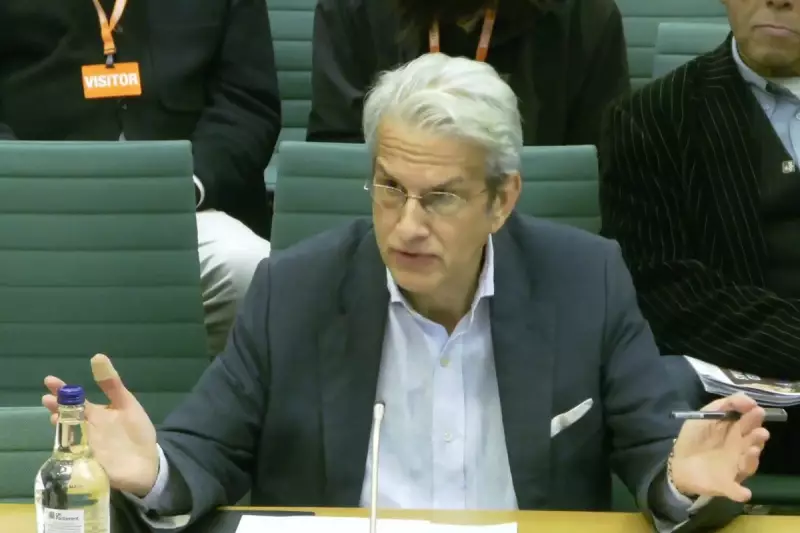
The BBC does not suffer from institutional bias, according to the former external adviser who wrote a leaked memo raising concerns about the corporation's editorial standards.
Committee Grilling Over Leaked Memo
Michael Prescott, who previously served on the BBC's editorial standards committee, faced questioning from MPs on the Culture, Media and Sport Committee on Monday 24 November 2025. The session came after he raised alarms about selective editing in a Panorama episode featuring former US President Donald Trump.
Mr Prescott expressed uncertainty about how his memo, which he had shared with both DCMS and Ofcom, found its way to the Daily Telegraph. He emphasised his fundamental support for the broadcaster despite his concerns.
"At the most fundamental level I wrote that memo, let me be clear, because I am a strong supporter of the BBC," Mr Prescott told committee members. "The BBC employs talented professionals across all of its factual and non-factual programmes, and most people in this country, certainly myself included, might go as far as to say that they love the BBC."
Systemic Problems and Trump Editing Controversy
The former journalist revealed that during his three-year tenure on the standards committee, he observed persistent issues that weren't being adequately addressed. "What troubled me was that during my three years on the BBC standards committee, we kept seeing incipient problems which I thought were not being tackled properly, and indeed I thought the problems were getting worse," he stated.
The memo specifically highlighted concerns about how clips from Mr Trump's speech on January 6 2021 were edited together in the Panorama documentary Trump: A Second Chance? The editing created the impression that the former president had directly told supporters he would accompany them to the US Capitol to "fight like hell".
The broadcasting controversy triggered significant consequences, including a billion-dollar litigation threat from Mr Trump and an investigation by US regulator the Federal Communications Commission (FCC).
Political Neutrality and Fallout
Mr Prescott stressed that his concerns weren't motivated by political allegiance. "There was no ideology at play, no party politics," he asserted. "If you take the example of the US elections report that came before the committee, if it had found that had been Kamala Harris misrepresented, not Donald Trump, I would have acted in exactly the same way."
When directly asked whether he believed the BBC was institutionally biased, Mr Prescott responded unequivocally: "No I don't... I do not think it's institutionally biased. Let's be very clear. Tons of stuff that the BBC does is world class, both factual programming and non factual programming."
The former journalist described himself as a "centrist dad" when questioned about his own potential biases, acknowledging the difficulty of self-assessment in such matters.
Mr Prescott maintained that the issues he identified had systemic roots rather than being isolated incidents. "Every single thing we spotted, as per my memo, seemed to me to have systemic causes," he explained. "And the root of my disagreement and slight concern even today is that the BBC was not, and I hope they will change, treating these as having systemic causes. There's real work that needs to be done at the BBC."
Apologies and Leadership Changes
Following the report, BBC chairman Samir Shah issued an apology on behalf of the corporation, acknowledging an "error of judgment" and accepting that the editing of the 2024 documentary gave "the impression of a direct call for violent action".
Despite this apology, Mr Trump confirmed he would proceed with legal action seeking damages "anywhere between one billion dollars (£759.8 million) and five billion dollars (£3.79 billion)".
The BBC has reportedly outlined five main arguments in a letter to Mr Trump's legal team explaining why it believes there's no basis for a defamation claim.
The controversy led to significant leadership changes at the broadcaster, with director-general Tim Davie and news chief Deborah Turness both resigning in the aftermath of the report becoming public.
Mr Prescott offered a nuanced assessment of Mr Davie's leadership, describing him as having done a "first-rate job" as director-general while suggesting he had a "blind spot" toward editorial failings.
When questioned about whether the Panorama episode had actually damaged Mr Trump's reputation, Mr Prescott offered a surprising assessment: "Probably not".
The BBC has now advertised the vacant director-general position on its careers website, marking the beginning of the search for new leadership to steer the corporation through this challenging period.






